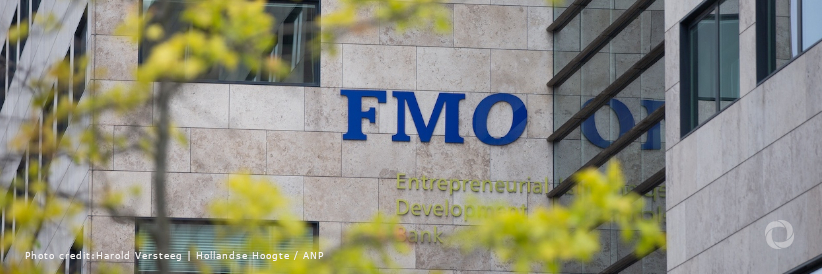The Dutch Development Bank FMO has experienced its most profitable year ever in 2024. Its investments in developing countries generated a net profit of 297 million euros.
“It proves that investing in access to (green) energy, food, and financing sectors in developing countries creates value in the long term,” CEO Michael Jongeneel wrote in the annual report of the government bank (the state owns 51 percent of the shares).
In 2023, the profit was only 65 million euros. Jongeneel sees the recent trend of major financial institutions turning away from sustainable banking as a major mistake.
“Sustainable investing makes sense. The Netherlands benefits from it.”
The Success Behind FMO’s Profit Surge
What’s behind your enormous profit increase?
“I admit that the profit surge is somewhat inflated by the dollar exchange rate. We earn our money in U.S. dollars, and that currency had risen significantly in value by the end of last year. So when you convert the profit back to euros, that’s naturally favorable. The dollar is now falling again, so we’re also losing that advantage.
“But even after adjusting for that, we still have a very strong profit. Mainly because we’ve suffered considerably fewer losses. As a development bank, we invest in projects that traditional banks find too risky or not lucrative enough. We do want returns because we’re a for-profit organization. These are often high-risk investments, so the chance of losses is also high. But we’re getting better at managing risks, and we have fewer projects that are performing poorly.”
Isn’t this impressive performance mostly luck?
“I wouldn’t call it luck. It’s true that in some years you have real setbacks that you can’t do much about. For example, we recently had to write off a lot of investments in Ukraine. That gives you a bad year. But we’ve also genuinely improved at assessing certain risks through better evaluation of investment plans.”
The Value of Sustainable Investing
Your concern about the sentiment around sustainable investing is partly due to financial institutions withdrawing from the ‘Glasgow Alliance’ after Trump’s election. Members of that alliance promise to align their investments with the climate goal of achieving ‘net zero’ CO2 emissions by 2050. You say this is not only bad for the climate but also financially unwise. Why?
“Let me answer by giving you the example of our investments in the coffee sector. The price of coffee has risen sharply in recent years, which every attentive coffee drinker has probably noticed by now”.
“This is related to climate change. Farmers see their harvests fail due to increasingly unpredictable and erratic rainfall. In recent years, we’ve financed projects to make coffee plantations more resilient to such extremes by improving irrigation and switching to crops that are more resistant to extreme weather events. If you think through climate risks properly and respond timely, you can make good money – our coffee farmers are now making good profits selling their beans.”
Growth Opportunities in Developing Markets
Are there other reasons why investing in developing countries is attractive?
“It’s simple: Western population is barely growing, while Africa is thriving, with more and more young people. Take a country like Nigeria. It already has the largest population on the continent, and it’s also very young. So that’s simply a growth market where you can develop a profitable business.
“We notice this with our investments in Access Bank. It started small, providing microcredits. It has now become the largest bank in Nigeria.”
Benefits for the Netherlands
How is that important not only for local entrepreneurs and FMO, but also for the Netherlands? Can you explain that?
“Well, we are a trading nation. Dutch companies earn money when there is business activity in developing countries. With coffee, that’s very clear. A lot of coffee is roasted in the Netherlands and traded further. We’re the fifth largest coffee exporter in the world. So reliable coffee production is also good for the Dutch economy”.
“In the slightly longer term, it’s also important for all those Dutch companies working in developing countries that society is somewhat stable. And the most important basis for a stable society is, of course, economic prosperity.”
But the trend is that the West is stopping development aid and apparently limiting trade. The new Trump administration has even completely dismantled USAID.
“Yes. I think if we call each other in six months, I can already give a dozen examples of how that is impacting things in the developing countries, but certainly also in the U.S. and Europe. It then takes a lot of time to rebuild it. That’s our biggest concern.”

